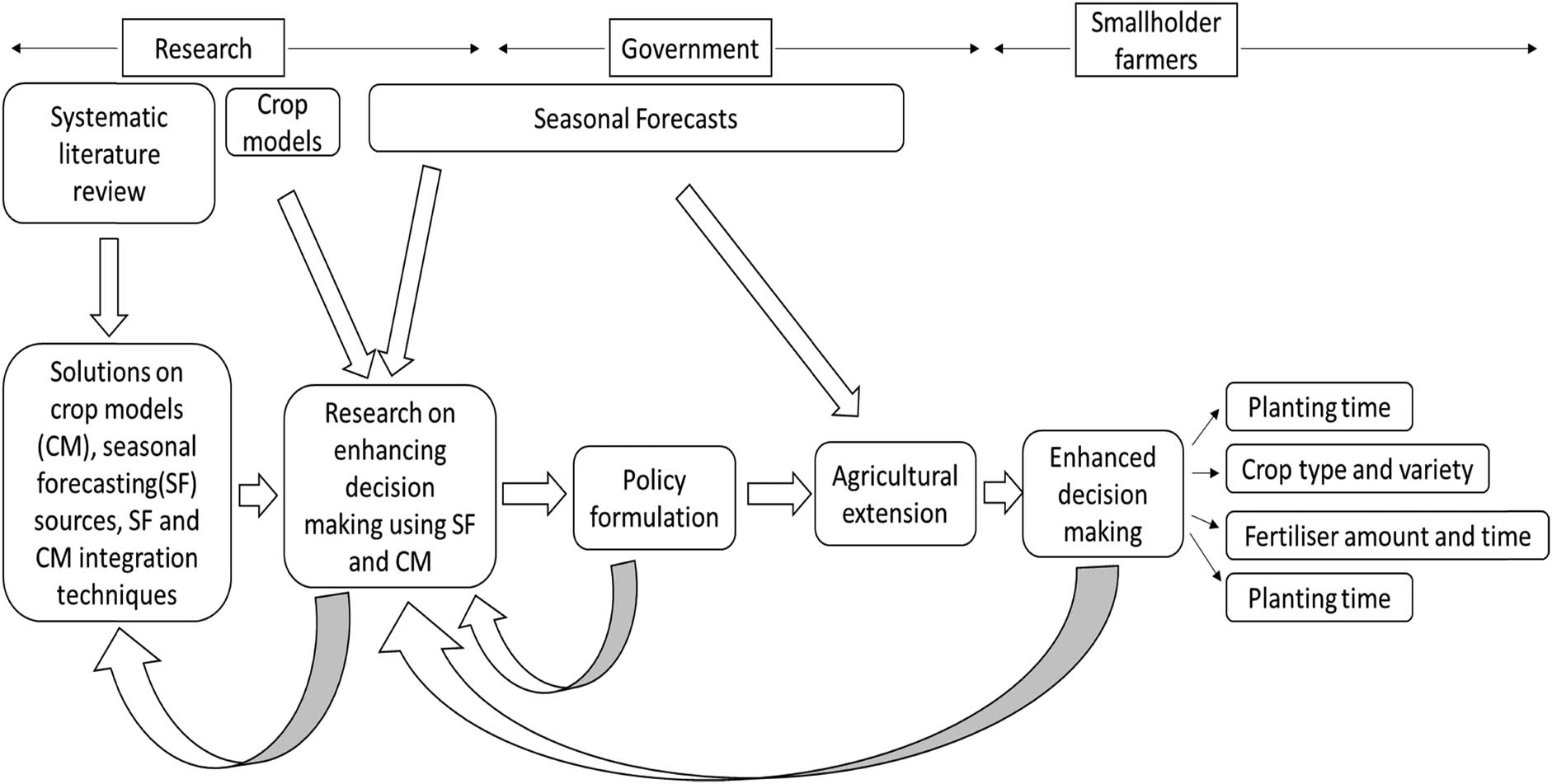Lessons from integrated seasonal forecast-crop modelling in Africa: A systematic review
Seasonal forecasts combined with crop models have the potential to improve decision-making in African smallholder farming. The study aimed to guide future research by identifying and analyzing crop and climate models, as well as approaches for merging seasonal forecast data with crop models. Google Scholar, Web of Science, AGRIS, and JSTOR were used to find peer-reviewed literature on crop modeling and seasonal forecasting. Approximately 74% of the studies employed mechanistic models, which are preferred for climate risk management research since they take crop management techniques into consideration. GCMs, analogue, stochastic disaggregation, and statistical prediction through transforming seasonal weather summaries into daily weather have all been evaluated to increase the effectiveness of the relationship between seasonal forecast information and mechanistic crop models. GCM outputs are in a format that is compatible with mechanistic crop models. Such outputs are crucial for researchers to understand the benefits and drawbacks of various methods and approaches for merging seasonal forecast and crop models. However, such research should be expanded to include other African locations, crops, farming practices, and policies.
